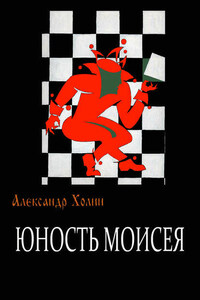Volume One – Chapter One.
Family Affairs
The first important event of my life transpired on the 22nd May, 1831. On that day I was born.
Six weeks after, another event occurred which no doubt exerted an influence over my destiny: I was christened Rowland Stone.
From what I have read of ancient history – principally as given by the Jews – I have reason to think, that I am descended from an old and illustrious family. No one can refute the evidence I have for believing that some of my ancestors were in existence many hundred years ago.
The simple fact that I am in existence now is sufficient proof that my family is of a descent, ancient and noble, as that of any other on earth.
Perhaps there is no family, in its wanderings and struggles towards remotest posterity, that has not experienced every vicissitude of fortune; sometimes standing in the ranks of the great; and in the lapse of ages descending to the lower strata of the social scale, and there becoming historically lost.
I have not yet found it recorded, that any individual of the family to which I belong ever held a very high position – not, in fact, since one of them named Noah constructed a peculiar kind of sailing craft, of which he was full owner, and captain.
It was my misfortune to be brought into existence at a period of the world’s history, when my father would be thought by many to be a man in “humble circumstances of life.” He used to earn an honest living by hard work.
He was a saddle and harness-maker in an obscure street in the city of Dublin, and his name was William Stone.
When memory dwells on my father, pride swells up in my soul: for he was an honest, temperate, and industrious man, and was very kind to my mother and his children. I should be an unworthy son, not to feel pride at the remembrance of such a father!
There was nothing very remarkable in the character of my mother. I used to think different once, but that was before I had arrived at the age of reason. I used to think that she delighted to thwart my childish inclinations – more than was necessary for her own happiness or mine. But this was probably a fault of my wayward fancy. I am willing to think so now.
I was a little wilful, and no doubt caused her much trouble. I am inclined to believe, now that she treated me kindly enough – perhaps better than I deserved.
I remember, that, up to the time I was eight years of age, it was the work of two women to put a clean shirt on my back, and the operation was never performed by them without a long and violent struggle. This remembrance, along with several others of a like nature, produces upon me the impression, that my parents must have humoured my whims – too much, either for my good or their own.
When I was yet very young, they thought that I was distinguished from other children by a penchant for suddenly and secretly absenting myself from those, whose duty it was to be acquainted with my whereabouts. I often ran away from home to find playmates; and ran away from school to avoid the trouble of learning my lessons. At this time of life, so strong was my propensity for escaping from any scene I did not like, and betaking myself to such as I deemed more congenial to my tastes, that I obtained the soubriquet of The Rolling Stone.
Whenever I would be missing from home, the inquiry would be made, “Where is that Rolling Stone?” and this inquiry being often put in the school I attended, the phrase was also applied to me there. In short it became my “nickname.”
Perhaps I was a little vain of the appellation: for I certainly did not try to win another, but, on the contrary, did much to convince everybody, that the title thus extended to me was perfectly appropriate.
My father’s family consisted of my parents, a brother, one year and a half younger than myself, and a sister, about two years younger still.
We were not an unhappy family. The little domestic cares, such as all must share, only strengthened the desire for existence – in order that they might be overcome.
My father was a man without many friends, and with fewer enemies, for he was a person who attended to his own business, and said but little to any one. He had a talent for silence; and had the good sense not to neglect the exercise of it – as many do the best gifts Nature has bestowed upon them.
He died when I was about thirteen years old; and, as soon as he was gone from us, sorrow and misfortune began for the first time to show themselves in our house.
There are many families to whom the loss of a parent may be no great calamity; but ours was not one of them; and, young as I was at the time, I had the sense to know that thenceforward I should have to war with the world alone. I had no confidence in my mother’s ability to provide for her children, and saw that, by the death of my father, I was at once elevated from the condition of a child to that of a man.
After his decease, the work in the shop was carried on by a young man named Leary – a journeyman saddler, who had worked with my father for more than a year previous to his death.














